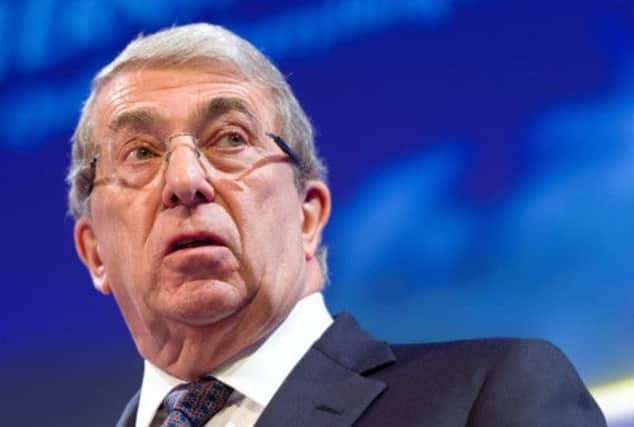Energy bills: Call to end ‘Punch and Judy politics’


Sir Roger Carr defended the industry and said investor confidence was being damaged by “political rhetoric”, inflaming “consumer passion”.
He dismissed charges against the energy providers of profiteering and Labour Party proposals of price caps.
Advertisement
Hide AdAdvertisement
Hide AdSir Roger praised the government’s “pragmatic” deal with the big six firms to give consumers a £50 reduction in bills by changing green levies.
Scottish Gas said it would reduce bill rises by an average of 3.2 per cent on 1 January following Chancellor George Osb-orne’s announcement, which comes after it hit nearly eight million customers with a 9.2 per cent average increase.
Sir Roger said the decision to hike prices is not made lightly. In an article published in a Sunday newspaper yesterday, he wrote: “No energy company wants to increase bills – it enrages customers, undermines loyalty and damages relationships. All energy companies support reduced consumption to decrease bills, through better home insulation and intelligent metering.
“Politicians from all parties have tried to win public support by suggesting measures to address escalating energy bills. Some propositions have had immediate populist appeal, but have been without economic logic.
“Capping prices when costs are driven by world markets, or imposing windfall taxes on profits, which range from modest margins to large losses, risk undermining our financial fabric. They have short-term voter attraction, but lay a pathway to long-term under-investment and supply decay.
“By contrast, the agreement reached with the government last week was both pragmatic and sensible – facilitating a reduction in bills by delaying some environmental costs over a longer period and redistributing others more equitably through general taxation.
“These measures reflect the value of calm discussion over adversarial exchange. They support the consumer, respect the environment, continue to help the vulnerable and are fair to the industry.” He added: “The Punch and Judy politics on energy must stop.”
E.on last week became the last of the major providers to raise prices, upping tariffs by an average of 3.7 per cent from 18 January, the most modest of hikes in recent months. It said it had scaled back a potentially higher price rise after the government’s change to green levies on energy bills.
Advertisement
Hide AdAdvertisement
Hide AdSir Roger, who is taking over as chairman of BAE Systems in the new year, wrote: “Political rhetoric [has] inflamed consumer passion, fed suspicion, discouraged investment and damaged investor confidence.
“All energy companies have been accused of profiteering, collaborating with competitors, manipulating costs to disguise profits, and caring little for their customers. These charges are false.”
Centrica warned last month that it would fail to meet the City’s expectations for annual profits after being affected by challenging conditions in its business supply arm across the UK and United States.
But it admitted profit margins in its British Gas residential business would largely hold firm, edging only slightly lower to just under 5 per cent.
The consumer group Which? said: “After the inflation-busting price hikes we’ve seen, it’s no wonder trust in the energy industry is at rock bottom and people are consistently worried about energy prices.
“Consumers want to see government action to tackle future energy prices, including wider reforms of the wholesale market to make it truly competitive and keep prices in check.”